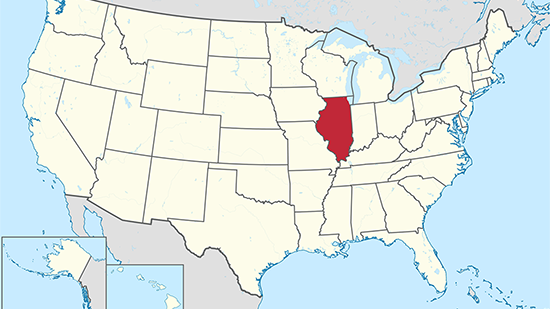Illinois: Payday Lenders Bypassed Regulation by Lengthening the Term of the Loans They Provided

2000: Illinois Passed Law To Rein In Payday Lenders With Law Regulating Loans With Terms Less Than 30 Days; Payday Lenders Bypassed The Law By Extending The Length Of The Loan To 31 Days.
“In 2000, Governor Ryan signed a law designed to rein in the rapid increase in short term payday loans. At that time the average length of a payday loan was 14 to 28 days (one or two pay periods). When the law was implemented in 2001, the rules only applied to loans of 30 days or less. Within days of the rules taking effect, the payday lending industry responded by extending the length of the loan to 31 days or longer to circumvent a law that had tried to protect consumers.” [Illinois Governor’s Office Press Release, 12/5/05]
- Lenders Dodged Illinois Law By Offering Loans With A Term Of 31 Days Since The Payday Law Only Applied To Loans Of 30 Days Or Less. “The preliminary report by the Illinois Department of Financial Institutions (DFI) shows that the state’s more than 800 licensed payday-loan locations are avoiding state-imposed limits on how much they can loan to an individual and how many times they can refinance a loan. The rules apply to loans with terms of 30 days or less; lenders are dodging the restrictions by writing loans of 31 days, the report says. Before the rules were instituted, the standard payday loan–designed to tide over strapped borrowers until their next paycheck–came due in 14 days. The regulations, issued in 2001 by the DFI over industry objections, were hailed at the time as the first substantial oversight of Illinois’ payday lenders. They barred lenders from “rolling over,” or refinancing, a loan more than twice and required that at least 20% of the outstanding principal balance be repaid when a loan is refinanced. But today, the industry operates nearly as freely in Illinois as it did before the rules, the DFI report indicates.” [Crain’s Chicago Business, 6/2/03]
- 2002 Illinois Department Of Financial Institutions Found That Less Than 3% Of The Payday Loans Offered Were Subject To The Payday Lending Law. “The numbers in the report, though, back that conclusion. The department’s random survey last year of payday loans found that just 55, or less than 3%, of the 1,980 loans reviewed were subject to the regulations.” [Crain’s Chicago Business, 6/2/03]
After Illinois Passed A Payday Lending Law In 2005 Regulating Loans With Terms Less Than 120 Days, Payday Lenders Began Offering Loans Longer Than That Which Didn’t Have Rate Caps. “So the coalition began pushing for new laws. In 2005 then-governor Rod Blagojevich signed the Payday Loan Reform Act, which was supported by both the Community Financial Services Association- a national trade group for payday lenders- and the Egan coalition. It codified some of the rules that had been subverted, requiring more time between loans and more thorough underwriting. But there was a loophole. The law established a regulatory regime that governed payday lenders whose loans had terms of 120 days or less. Lenders, DeLaforgue says, simply started writing loans with longer terms than that. Outside of the 120-day limit, they fell under the banner of the Consumer Installment Loan Act (CILA), which governed non-real-estate consumer loans of up to $40,000. The criteria for lending under CILA were much less stringent than those of the new payday law: it placed no caps on interest rates and required no underwriting.” [Chicago Reader, 6/30/11]
After 2005 Legislation In Illinois, Payday Lenders Offered Triple-Digit APR Installment Loans. “In Texas, where regulation is lax, lenders make more than eight times as many payday loans as installment loans, according to the most recent state data. Contrast that with Illinois, where the legislature passed a bill in 2005 that imposed a number of restraints on payday loans. By 2012, triple-digit-rate installment loans in the state outnumbered payday loans almost three to one.” [Cincinnati Enquirer, 8/11/13]
